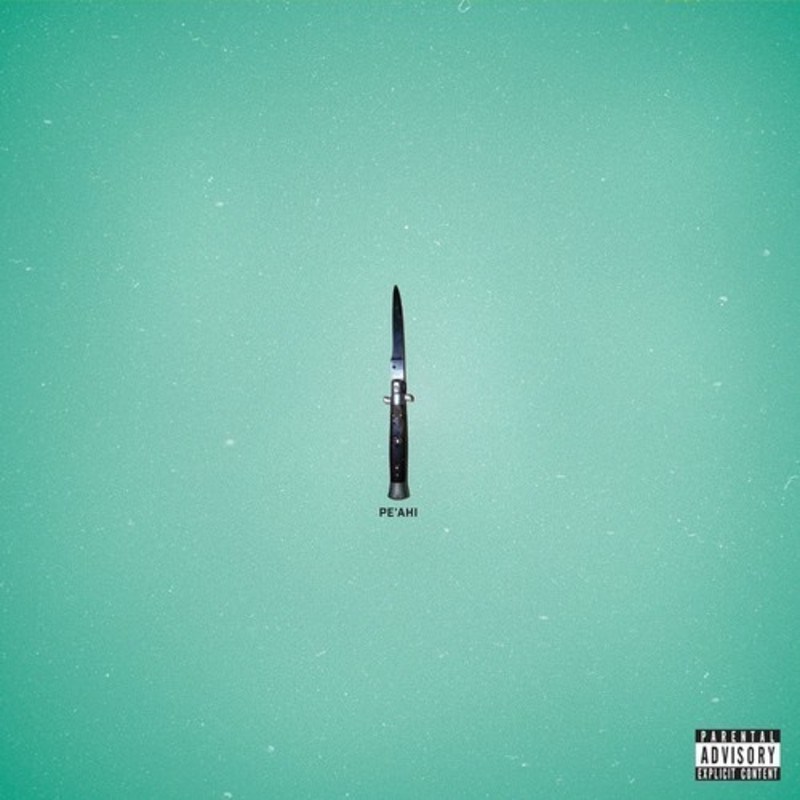
This post is in partnership with Consequence of Sound, an online music publication devoted to the ever growing and always thriving worldwide music scene.
The Raveonettes begin their seventh studio album with the same beat that opened The Doors’ first. The first lyrics that follow are “I have sand in my shoes and death on my mind.” If that’s not enough to situate you, the Danish duo (who now reside in Los Angeles) helpfully named the record after the north shore of Maui. Pe’ahi is a Pacific album through and through, and it doesn’t stop reveling in buzzed-out West Coast noir until it wraps things up with a tune called “Summer Ends,” in case you had any lingering hopes that anything gold could stay.
Dropped onto the world Beyoncé-style (or maybe it’s Wolfmother-style) the same day as its announcement, Pe’ahi marks a change in dynamics for a band that had more or less settled into a continuous stream of static. For their last three albums, Sune Rose Wagner and Sharin Foo worked a reliable assembly line of scuzzy dream pop songs bunched together under faux vintage, black-and-white album covers. Now, they present their latest with an aquamarine splash, even though the subject matter remains as grisly as ever.
Early on, Pe’ahi features one of the Raveonettes’ strongest moments of contrast to date. “Sisters” cuts from blissful walls of noise to clean harp strums while cruising a vintage West Coast hip-hop beat. It’s the first time I can remember the band playing around with silence instead of trying to cram as much noise into one place as possible. But aside from a brief foray into bells on “When Night Is Almost Done,” it’s really the only instance of experiment among the album’s offerings. Everything else wears the same thick coat of fuzz they’ve been messing with for more than a decade, the same digital decay that now ostensibly obscures some of the band’s most deeply personal lyrics.
Rather than noir for noir’s sake, Pe’ahi arrives packed with the more personal fruits of the grieving process. Wagner lost his father to alcoholism last December, and much of the album grapples with both his death and the trauma he inflicted while he was alive. On “Kill!,” Wagner sings bluntly about the time he, at age 10, walked in on his dad committing adultery with a stranger. It paints a scene you might expect from a Xiu Xiu album, as industrial noise flickers and tortured samples loop. “What if you fell to a hell below?” Wagner asks his father’s ghost on “A Hell Below.” “Would it hurt the same way you hurt me?” It’s a sweet-sounding song from a bitter place, but without context, it melts easily into the Raveonettes’ back catalog.
If we’re to believe the commentary tracks the band dropped on Spotify, Wagner uses the record to grapple with the question of how anyone can escape the shadow of their parents. How can you grow to be better than the trauma that shaped you? It’s a worthy question, but it’s not one that Pe’ahi shines much light on. “When you left, you destroyed my life,” growls Wagner on “Summer Ends”, but he could be talking about an ex-lover as easily as he could be singing about his dad. He delivers everything with such a flat nonchalance, backed by Foo’s gentle harmonies, that it’s tough to feel his pain through the noise.
The Raveonettes still come off shy, almost numb, sequestered in their own bubble of effects and casual irony. Despite its ambitions, Pe’ahi ripples through without much fanfare, another breeze fallen short of a storm.
Essential Tracks: “Sisters”
More from Consequence of Sound: The Top 40 Moments of Lollapalooza 2014
More from Consequence of Sound: Spoon’s Top 10 Songs
More Must-Reads from TIME
- Cybersecurity Experts Are Sounding the Alarm on DOGE
- Meet the 2025 Women of the Year
- The Harsh Truth About Disability Inclusion
- Why Do More Young Adults Have Cancer?
- Colman Domingo Leads With Radical Love
- How to Get Better at Doing Things Alone
- Michelle Zauner Stares Down the Darkness
Contact us at letters@time.com